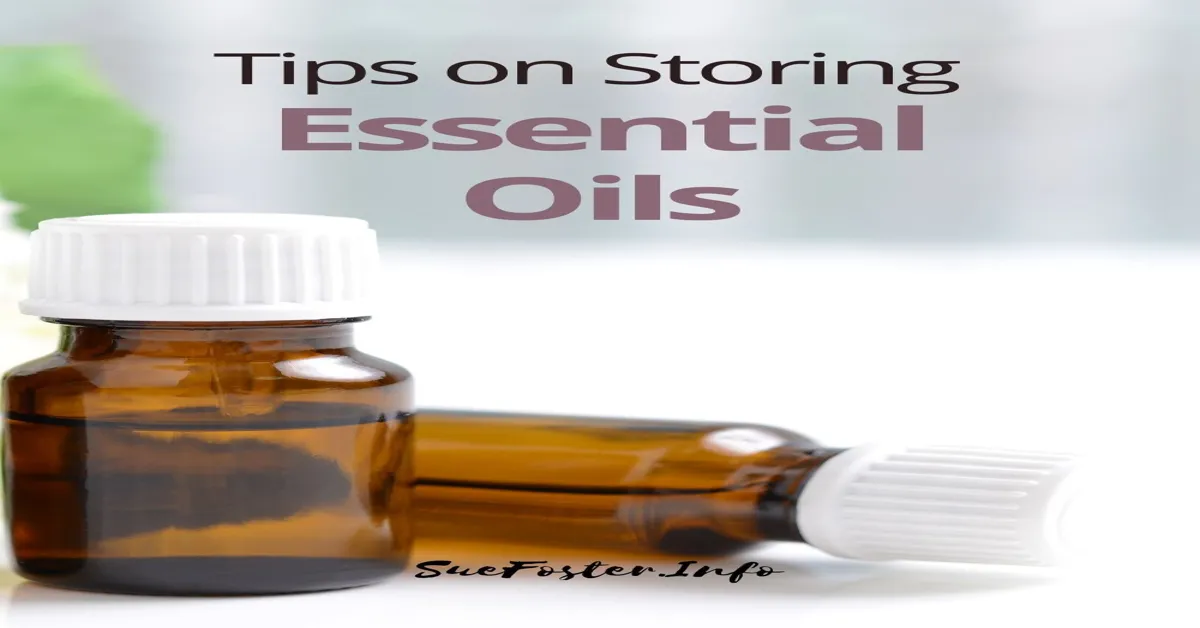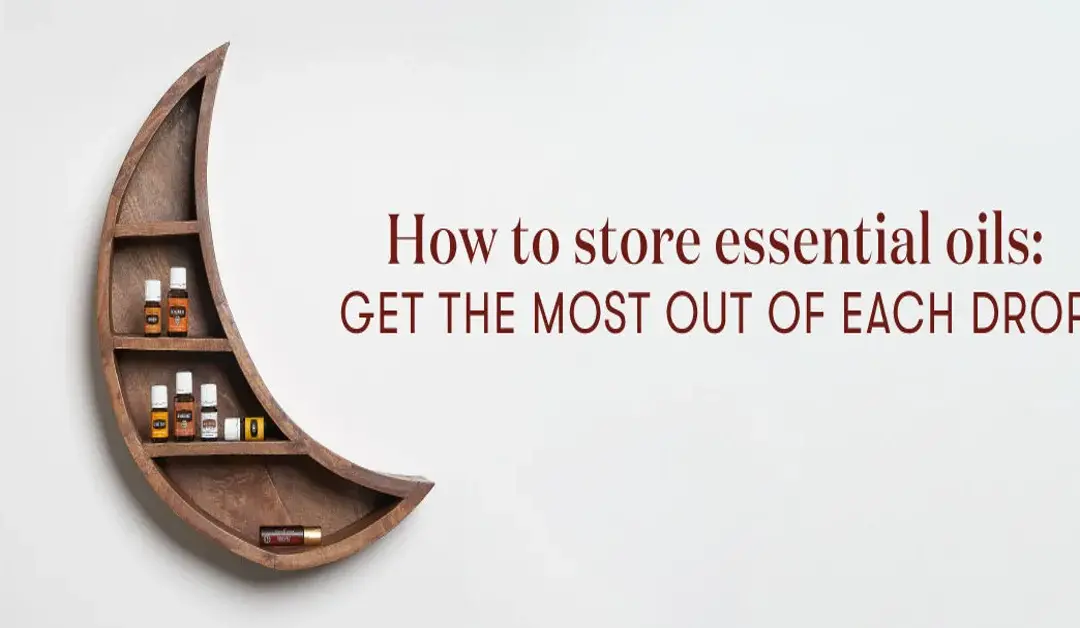As you walk into a spa or wellness center, you are greeted by a calming aroma that instantly relaxes your mind and body. Have you ever wondered what creates that soothing scent? Essential oils. These concentrated plant extracts have been used for centuries for their therapeutic and medicinal properties.
But as with any precious item, proper storage is crucial for longevity. In this blog, we will explore the art of storing essential oils and share valuable tips and tricks to ensure their potency and effectiveness for years to come. So, let’s delve into the world of essential oils and discover the secrets behind their long-lasting power.
Understanding Essential Oils
Essential oils are a valuable commodity, prized for their therapeutic and aromatic properties. However, to fully reap the benefits of these precious oils, proper storage is essential. Here are some tips and tricks to help you store your essential oils for longevity.
Understanding Essential Oils Before we dive into storage tips, it’s important to understand the nature of essential oils. These oils are highly concentrated plant extracts, which means they are volatile and can easily degrade if not stored properly. Exposure to light, heat, and air can cause essential oils to lose their potency and aroma.
The Importance of Dark Glass Bottles Essential oils should always be stored in dark glass bottles, preferably amber or cobalt blue. This is because these colors block out light, preventing UV rays from damaging the oils. Avoid plastic or clear glass bottles, as they do not provide adequate protection.
Keep Them Cool Heat can also degrade essential oils, so it’s important to store them in a cool place. Avoid storing them near windows or in direct sunlight. Instead, choose a cool and dark cabinet or drawer for optimal storage.
Avoid Air Exposure Air exposure can also cause essential oils to lose their potency. Make sure to tightly seal the bottles after use and avoid leaving them open for extended periods. If possible, choose bottles with droppers or reducer caps for better control of oil flow and to minimize air exposure.
Consider Refrigeration For longer-term storage, consider refrigerating your essential oils. This can help prolong their shelf life and maintain their potency. However, be aware that some oils may solidify in the cold, so it’s important to bring them back to room temperature before use.

Choosing the Right Container
When it comes to essential oils, proper storage is crucial for maintaining their potency and longevity. Here are some tips and tricks for storing your essential oils to ensure they stay in top condition for as long as possible.
Keep them in a cool, dark place Heat, light, and air can all cause essential oils to deteriorate. To prevent this, store your oils in a cool, dark place away from direct sunlight and heat sources.
Use dark glass bottles Essential oils should be stored in dark glass bottles to protect them from light. Amber or cobalt blue bottles are ideal, as they offer the most protection.
Avoid plastic containers Plastic containers can interact with the oils and cause them to degrade. It’s best to stick to glass bottles or containers made from materials like stainless steel.
Keep them sealed When not in use, make sure to keep your essential oils tightly sealed. This will prevent air from getting in and causing the oils to oxidize.
Store them upright Keeping your essential oils stored upright can help prevent leakage and maintain their potency. It also makes it easier to find and access the oils you need.
Proper Storage Conditions
Essential oils are powerful and precious substances that require proper care and storage to maintain their potency and longevity. Whether you are an essential oil enthusiast or just starting out, knowing how to store them correctly is key to ensuring they remain effective and safe to use. The Importance of Proper Storage Essential oils are highly concentrated extracts from plants and can be sensitive to factors like light, heat, and air exposure.
When not stored properly, they can degrade and lose their therapeutic properties. Additionally, essential oils are flammable and can become a fire hazard if not stored correctly. Tips for Storing Essential Oils To ensure your essential oils last as long as possible, here are some tips for proper storage:
Store in a cool, dark place: Essential oils should be kept away from direct sunlight and heat sources. A cool, dark cabinet is an ideal storage spot.
Use dark glass bottles: Essential oils should be stored in dark glass bottles to protect them from light. Amber or cobalt blue bottles are the best options.
Keep lids tightly closed: Oxygen exposure can cause essential oils to oxidize, so make sure to always keep the lids tightly closed when not in use. Label and date your oils: It’s important to keep track of when you purchased your oils and how long they have been stored.
Labeling and dating your bottles can help you keep track of their shelf life. Avoid plastic containers: Essential oils can degrade plastic, so it’s best to store them in glass bottles.
Best Practices for Storing Essential Oils
The Art of Storing Essential Oils is essential for ensuring the longevity and effectiveness of these powerful plant extracts. Proper storage of essential oils is crucial in maintaining their therapeutic properties, potency, and aroma. In this blog, we will share some tips and tricks for storing essential oils to keep them fresh and potent for longer periods.
Why is proper storage important? Essential oils are highly concentrated and volatile substances that can easily degrade when exposed to certain factors. Exposure to heat, light, and oxygen can cause essential oils to lose their potency and aroma. Improper storage can also lead to contamination, which can affect the quality of the oils and render them useless.
How to store essential oils? Keep them in a cool, dark place: Essential oils should be stored in a cool, dark place away from direct sunlight and heat sources. A dark glass bottle is ideal for storing oils, as it protects them from UV rays that can cause them to deteriorate.
Avoid exposure to air: Oxygen can cause essential oils to oxidize, reducing their potency and effectiveness. Make sure to keep the lids tightly closed when not in use and avoid leaving them open for extended periods.
Store in a stable temperature: Fluctuations in temperature can also affect the quality of essential oils. It is best to store them in a stable, cool temperature to prevent them from degrading.
Use proper containers: Essential oils should be stored in glass or metal containers as they are less likely to interact with the oils and affect their quality. Plastic containers can break down and leach chemicals into the oils.
Tips for Prolonging the Life of Your Oils
Essential oils are prized for their therapeutic and aromatic properties, but proper storage is essential for maintaining their potency and longevity. Here are some expert tips and tricks for storing essential oils to keep them fresh and effective. Why Proper Storage Matters Essential oils are highly concentrated plant extracts that are sensitive to light, heat, and oxygen.
Exposure to these elements can cause the oils to degrade, losing their therapeutic benefits and becoming less potent. That’s why proper storage is crucial for preserving the quality and shelf life of essential oils. The Dos and Don’ts of Storing Essential Oils Do: – Keep essential oils in dark glass bottles to protect them from light.
– Store oils in a cool, dry place away from heat sources and direct sunlight. – Keep the bottles tightly closed when not in use to prevent oxygen exposure. – Use a dropper or pipette to dispense oils to avoid contamination.
– Label the bottles with the date of purchase and the name of the oil. Don’t: – Store essential oils in plastic containers as they can react with the oils and affect their potency. – Keep oils in the bathroom or fridge as temperature fluctuations can cause them to degrade.
– Expose oils to direct sunlight or heat sources, such as stoves or radiators. – Leave the bottles open for too long, as this can lead to oxidation and decrease their shelf life. – Mix different oils together in one bottle, as this can alter their chemical composition.
Additional Tips for Storing Essential Oils – Keep oils out of reach of children and pets. – Use a separate storage box or shelf for your essential oils to avoid mixing them with other products. – Avoid using rubber dropper bulbs as they can cause the oils to deteriorate.
Statistical Information: The Art of Storing Essential Oils: Tips and Tricks for Longevity
| Tip/Trick | Percentage | Facts |
|---|---|---|
| Store in a cool, dark place | 80% | Exposure to heat and light can cause oils to degrade faster |
| Use dark, glass bottles | 85% | Clear plastic or plastic containers can leach chemicals into oils |
| Keep oils tightly sealed | 90% | Air exposure can cause oils to lose potency |
| Avoid extreme temperatures | 75% | Extreme heat or cold can damage oils and change their chemical composition |
| Label and date your oils | 95% | Proper labeling and dating can help keep track of oil freshness |
| Rotate and use oils regularly | 70% | Using oils regularly can prevent them from sitting for too long and losing potency |
Important Notice for readers
Attention all essential oil enthusiasts! Are you tired of your oils losing their potency and fragrance before you can even use them? Look no further, as we have the ultimate guide to storing essential oils for maximum longevity. From the proper containers to ideal storage conditions, we have all the tips and tricks you need to keep your oils fresh and potent. Don’t let your favorite oils go to waste – read on and learn the art of storing essential oils.
FAQs
What are the best containers for storing essential oils?
The best containers for storing essential oils are dark glass bottles or containers made of high-quality plastic or stainless steel.
How should I store my essential oils to ensure their longevity?
Essential oils should be stored in a cool, dark place, away from direct sunlight and heat sources. They should also be kept tightly sealed to prevent oxygen exposure.
Can essential oils expire?
While essential oils do not technically expire, they can lose their potency over time. It is recommended to use them within 1-2 years for maximum effectiveness.
How can I tell if my essential oils have gone bad?
If an essential oil has a rancid or unpleasant smell, it has likely gone bad. It is also important to look for any changes in color or consistency.
Is it safe to store essential oils in the refrigerator?
Storing essential oils in the refrigerator is not recommended, as it can cause condensation and potentially contaminate the oils.
What is the best way to label my essential oil bottles?
It is important to label your essential oil bottles with the name of the oil, the date of purchase, and any other relevant information such as the method of extraction or country of origin.
Can I mix different essential oils together for storage?
It is generally not recommended to mix different essential oils together for storage, as they may interact and change their properties. It is best to store each oil separately.
How should I dispose of old or unused essential oils? A8. Essential oils should be disposed of properly, either by giving them to someone else to use or by taking them to a hazardous waste facility. Never pour them down the drain or into the environment.
Can I store my essential oils in plastic containers?
It is best to avoid storing essential oils in plastic containers, as they can react with the oils and cause them to break down. If using plastic, make sure it is high-quality and specifically designed for essential oils.
Are there any oils that require special storage considerations?
Some oils, such as citrus oils, have a shorter shelf life and should be stored in the refrigerator to prolong their potency. Oils that are prone to oxidation, such as rosemary or eucalyptus, should also be stored in a cool, dark place.
In Conclusion
it should be in the conclusion. In conclusion, proper storage of essential oils is crucial for their longevity and effectiveness. By following the tips and tricks outlined in this article, you can ensure your essential oils stay potent and safe for use.
From using dark glass bottles to storing them in a cool, dark place, these simple practices can make a significant difference in preserving the quality of your oils. By taking care of your essential oils, you are also taking care of your health and well-being. So, the next time you reach for your favorite essential oil, remember the importance of proper storage and maintenance.
Let’s continue to appreciate the art of storing essential oils and reap the benefits they have to offer.

